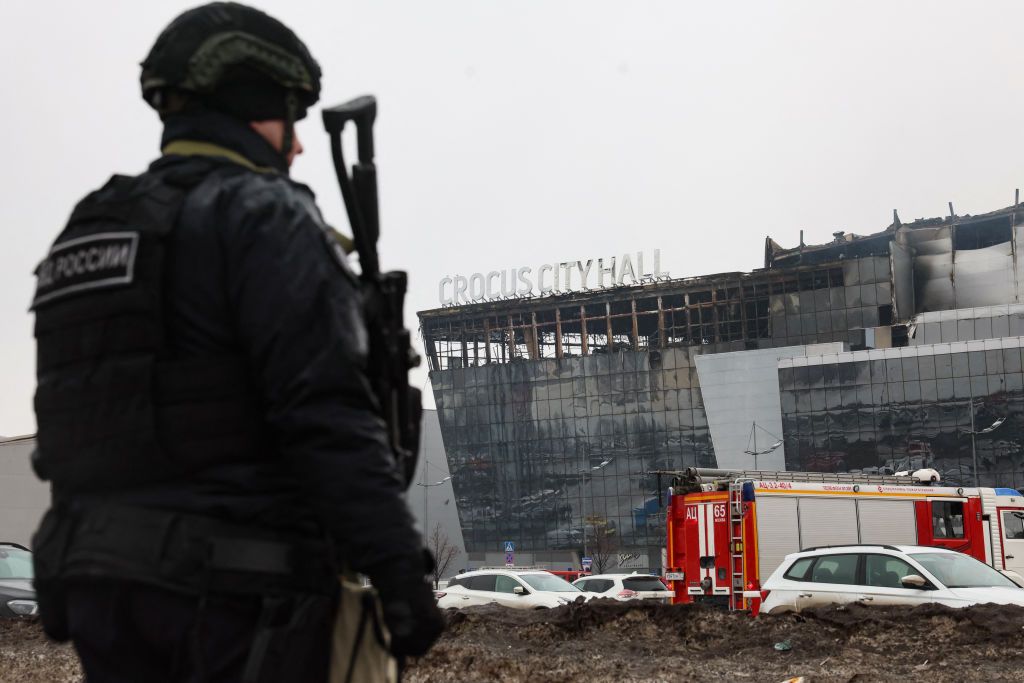The aftermath of the mass shooting at the Crocus City Hall concert hall in Moscow on March 22 has led to a wave of repression and fear in Russia. In the wake of the attack, Russian officials and propagandists have called for the reinstatement of the death penalty, not only for terrorists but also for peaceful activists. The shooting, which resulted in the deaths of at least 144 people, was claimed by the Islamic State (ISIS), but Russian authorities have blamed the Ukrainian government without providing any evidence. This has sparked tensions between Russia and Ukraine, with the Kremlin calling for the arrest and extradition of the head of the Security Service of Ukraine (SBU), a move that has been rejected by both Ukraine and the United States.
According to a survey by OpenMinds, an Anglo-Ukrainian online pollster, more than 50% of Russians believe that the Ukrainian leadership is responsible for the shooting at the concert hall. Around 27% of respondents blamed ISIS, while 6% pointed to the “collective West,” including the U.S., the U.K., and NATO. Younger people aged 18 to 30 were more likely to blame ISIS for the attack, especially those who oppose the war, while Russians aged 31 to 50 had the highest number of people who believed in Ukraine’s involvement in the shooting. The survey, which included 652 Russian participants, shed light on the various perspectives within Russian society regarding the incident.
The call for the death penalty and the blame placed on Ukraine for the mass shooting in Moscow have raised concerns about potential repressions and racism in Russia. The Kremlin’s attempts to shift blame onto Ukraine have further strained relations between the two countries, with Ukraine and the U.S. rejecting the allegations. The aftermath of the attack has highlighted the political tensions and propaganda efforts in the region, as well as the impact of such events on public opinion among Russians. The survey results indicate a divide between different age groups and beliefs regarding who is responsible for the shooting, reflecting the complex nature of the situation.
The mass shooting has also raised fears of a new wave of terror and oppression in Russia, with politicians and propagandists using the incident as a justification for harsh measures. The potential reinstatement of the death penalty, as suggested by some officials, could have far-reaching consequences for both terrorists and peaceful activists. The atmosphere of fear and suspicion following the attack underscores the fragility of political stability in the region and the need for careful navigation of tensions between Russia and Ukraine. The international community will be closely monitoring the situation as it unfolds and assessing the implications for regional stability and security.
In conclusion, the mass shooting at the Crocus City Hall concert hall in Moscow has sparked a range of reactions and concerns in Russia, from calls for repressions and racism to geopolitical tensions with Ukraine. The blame placed on the Ukrainian government for the attack, despite the lack of evidence, has deepened existing divides within Russian society and raised fears of a new wave of terror and oppression. The aftermath of the shooting underscores the complex political dynamics in the region and the challenges of navigating relationships between neighboring countries. The international community will be watching closely as events unfold and working to support independent journalism and accurate reporting in order to promote transparency and accountability in the region.


